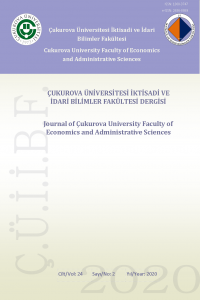ORTA ÇAĞ İKTİSAT ZİHNİYETİ SINIRLARINDA M. LUTHER VE J. CALVİN’İN TEFECİLİK YORUMLARI
Martin Luther , borçlanan kişi bütün riski üstlendiği , alacaklı hiçbir tehlikeye girmeksizin kazanç sağladığı , değişen koşullar ve talihsizlik alışılmış riskleri üstlenmeksizin gelir elde ettiği için ; tefeciliğin yanlış olduğunu beyan etmiştir. Bu nedenle Luther , kayıksız bir şekilde arazinin ipotek altına alınmasına ve günah affı belgeleriyle paranın toplanmasına , çok acımasız bir tarzda saldırmıştır. Almanya’nın tefecilik yoluyla tüketildiğinde , özellikle de annuity (ana para karşılı düzenli aylık faiz) tarzındaki tefecilikle sömürüldüğünde ısrar etmiştir. Jean Calvin ise , bir tefecilik borçlanması olmaması nedeniyle , yalnızca işte kullanma niyetleriyle alınan üretken borçlara izin verilmesi gerektiğini düşünmüştür. Zira , borçlunun alacaklıya kıyasla daha fazla kazanabileceğini kabul etmiştir. Ancak , fakirden kesinlikle bir faiz alınmamalıdır.
Anahtar Kelimeler:
Günah affı belgesi , Aylık faiz borçlanması , Reform
The usury interpretations from the view of M.Luther and J.Calvin in the limitations of the medieval economic mind
Martin Luther asserted that usury is wrong because all the risks fall on the borrower , the creditor makes his profit without danger and he earns income without incurring the usual risks due to changing conditions and misfortune. For this reason Luther attacks very unfairness without reckless way in which land was mortgaged and money was collected by indulgences. He insisted that all Germany is being exhausted by usury , notably exploited by borrowing in the form of the annuities. Jean Calvin thought that only productive credit for business purposes is allowed , because this is not usury borrowing. Because he admitted that the debtor could be gain just as much from the money as the creditor. But from poor men no interest is to be taken.
Keywords:
Indulgences, Annuity, Reform,
- ISSN: 1300-3747
- Başlangıç: 1987
- Yayıncı: Çukurova Üniversitesi
